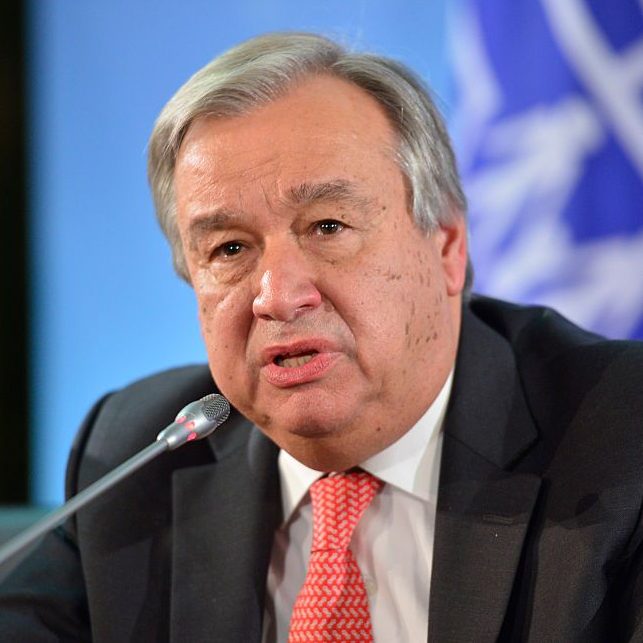The despotic Kim Jong Un regime has used money laundering, overseas labor, cyberattacks, and illegal arms sales to sustain its weapons program all while committing gross human rights violations at home. Renewed diplomacy between the U.S. and North Korea must head off further escalation and reduce nuclear risk on the Korean Peninsula. With more than 28,000 U.S. troops on the Korean Peninsula, there is no alternative military solution to this challenge that does not include the high risk of mass casualties, potential use of nuclear weapons, or escalation into regional conflict.
Call on Congress to support sustained diplomatic efforts to roll back North Korea’s nuclear program, support confidence building measures, and oppose any new sanctions that would hinder the provision of humanitarian assistance.
The Latest
North Korean leader Kim Jong Un has recently expressed some willingness to reengage with the United States under President Trump. Citing his “fond memories” of President Trump, he floated an offer for talks if the United States gave up its demand for denuclearization, vowing that North Korea would “never, ever” give up its nuclear weapons.
Since U.S.-North Korea talks broke down in 2019, North Korea’s nuclear weapons program has only grown more lethal. Not only has North Korea fielded a new intercontinental ballistic missile capable of hitting any part of the United States, it has redoubled efforts to make North Korea’s nuclear forces more survivable and agile. With North Korea’s development of diverse missile basing modes to evade a preemptive attack and a revised command and control posture to launch an automatic nuclear attack in the event North Korea’s leadership is attacked, the risk of nuclear escalation and cost of miscalculation have increased.
North Korea’s willingness to reengage the United States comes in the context of its growing strategic partnerships with Russia and China. Most notably, Russia and North Korea have deepened their relationship through Russia’s invasion of Ukraine, with North Korea has supported Russia’s war against Ukraine with large quantiles of ammunition, artillery shells, ballistic missiles and other weapons reportedly in exchange for sensitive weapons and satellite technology and economic assistance. In June 2024, Kim and Russian President Putin signed a mutual defense treaty that led to more than 10,000 North Korean soldiers to the Russian frontline. Chinese leader Xi Jinping and Kim have similarly drawn closer, with Kim traveling to Beijing this year for the first time to commemorate the end of World War II and other high level engagements vowing to “safeguard common interests.”


